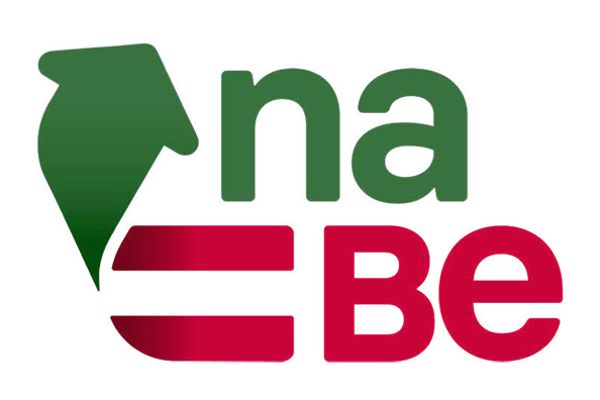Sustainable Public Procurement (naBe)

Environmental and climate protection, a careful and responsible use of our resources and nature, as well as an administration that actively embraces its role as a role model, are central goals of the Austrian Federal Government.
The enormous macroeconomic potential of public procurement, accounting for around 14 percent of the Gross Domestic Product (GDP) per year, is to be harnessed through the national Action Plan for Sustainable Public Procurement (naBe).
The Federal Procurement Act stipulates that the environmental compatibility of the service must be taken into account in the procurement process. The naBe Action Plan specifies paragraph 20 paragraph 5 of the Federal Procurement Act 2018 (RIS) (in German only) and provides guidance to procurers on how to implement this regulation. In addition to concrete goals and measures, the naBe Action Plan contains an extensive catalog of criteria for a total of 16 procurement groups.
Action Plan
From organic food to green electricity to emission-free vehicles: The "Sustainable Procurement" Action Plan regulates how and in what quality public authorities make their purchases.
Platform "Action Plan for Sustainable Public Procurement" (nabe.gv.at)
Circular from the Federal Ministry of Justice dated July 20, 2021 (PDF, 400 KB) (in German only)
Presentation to the Council of Ministers dated July 22, 2021 (PDF, 120 KB) (in German only)
Strategic Partnerships
By signing a strategic partnership, the cooperation with the Federal Ministry for Climate Action is formally confirmed:
- City of Linz (nabe.gv.at) (in German only)
- City of Villach (nabe.gv.at) (in German only)
- Company ASFINAG (nabe.gv.at) (in German only)
Best Practice
As part of the projects CEMOBIL and E-Log Klagenfurt, e-mobility was established for the first time on a series-production level in a city to counteract health burdens caused by air pollutants and noise and to contribute to climate protection by reducing greenhouse gases. These projects increase the quality of life for all citizens and represent an important step towards becoming a Smart City.
The CEMOBIL project was implemented by the City of Klagenfurt am Wörthersee together with the project partners: the State of Carinthia, Stadtwerke Klagenfurt, Klagenfurt Marketing, Carinthia University of Applied Sciences, Research Society for Mobility, Wörthersee Shipping, International Project Management Agency (IPAK) Klagenfurt on Lake Wörthersee GmbH, and the Institute for Technology and Alternative Mobility.
To sustainably establish and promote e-mobility in Klagenfurt am Wörthersee, a total of 69 electric vehicles (35 passenger cars, 2 commercial vehicles, 10 microcars, 10 pedelecs, 10 scooters, 1 e-bus, and 1 solar-powered boat) were procured and tested, and the necessary infrastructure was built. Fifty electric charging stations were installed in the Klagenfurt am Wörthersee area. Another 50 electric charging stations were established through private initiatives (for example, housing developers, shopping centers). Additionally, two fast-charging stations were installed. The charging stations are located at key points in public spaces and are operated with 100 percent green electricity. E-mobility has been permanently anchored in urban transport planning. Overall, around 2,700 test drivers took the opportunity to experience e-mobility firsthand. Through the environmental vignette and thus free use of parking facilities in the city center of Klagenfurt am Wörthersee, there is an incentive to purchase electric cars.
Klagenfurt am Wörthersee serves as a best-practice example for other municipalities at the local, regional, and national levels. Sixteen electric vehicles, acquired through Cemobil and E-Log Klagenfurt, have been integrated into the city’s fleet and permanently replace vehicles with combustion engines. Various city departments now operate electric cars. The Klagenfurt public order office also carries out its duties with two electric cars. The e-bus and the e-ship continue to be in use even after the end of the project.
The City of Traun has been a Fairtrade Town since 2015. This is both an award and a commitment to continue advocating for environmental protection, poverty reduction, and fair working conditions. Already in 2014, a large project was initiated: the transition to work clothing based on Fairtrade principles. This means that employees in childcare, the fire brigade, water rescue, etc., are now equipped not with cheaply manufactured clothing, but with fairly produced polo shirts made from excellent organic cotton, as well as high-quality work coats produced in a pro mente facility, whose fabrics at least comply with the " Global Organic Textile Standard." For this project, the City of Traun received the “European Fair Cotton Award,” an accolade for socially fair procurement of cotton products. This Europe-wide award allows cities, municipalities, regions, and public institutions to showcase their commitment to responsible procurement.
The goal of the City of Traun is to use as many fairly produced and traded goods as possible. On the one hand, this aims to improve working conditions. On the other hand, the City of Traun wants to serve as a role model for the population and other municipalities to inspire a change in mindset.